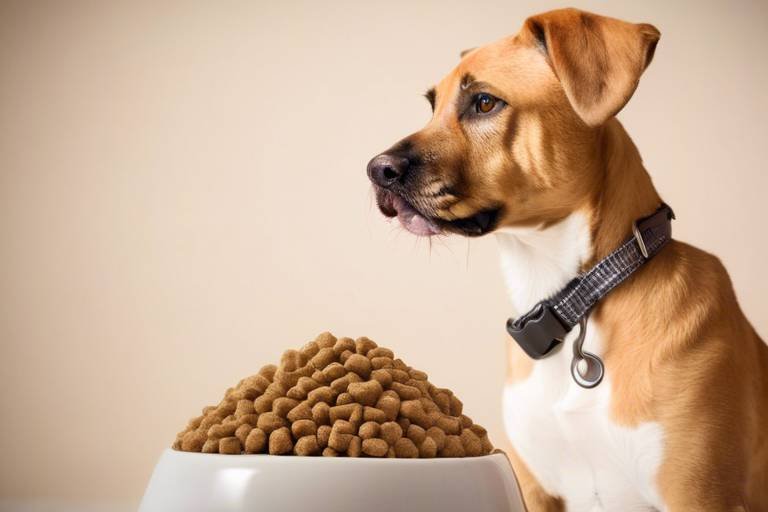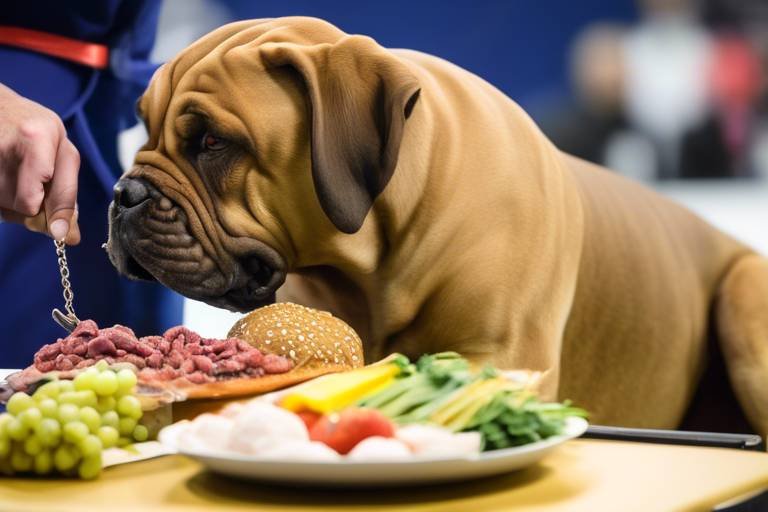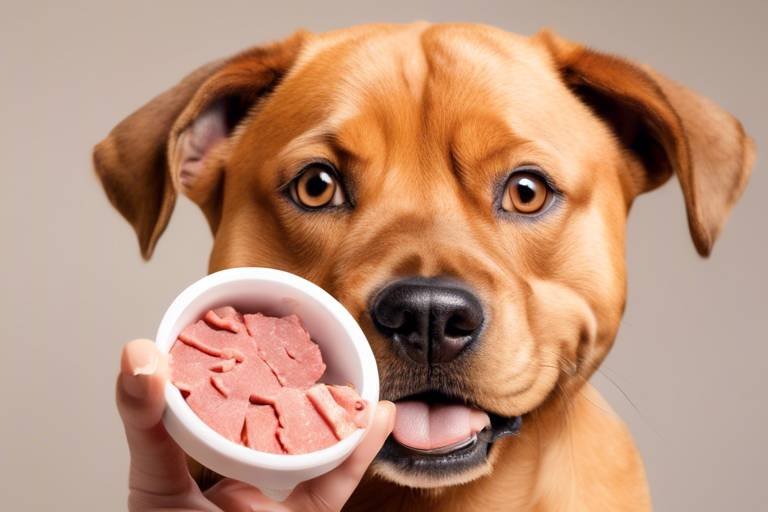How to Create a Diet Plan for Your Ferret
Creating a diet plan for your ferret is not just about tossing some kibble in a bowl and calling it a day. It's about understanding the unique nutritional needs of these playful little creatures. Just like humans, ferrets require a balanced diet to thrive, and getting it right can make all the difference in their health and happiness. Think of it as crafting a gourmet meal plan tailored specifically for your furry friend—one that fuels their energy, supports their growth, and keeps them bouncing around with joy.
First off, let’s dive into the basics of ferret nutrition. Ferrets are obligate carnivores, which means their diet is primarily made up of protein and fat. In fact, a good ferret diet should consist of at least 30-40% protein and 15-20% fat. Why is this important? Well, protein is essential for muscle development and overall vitality, while fat provides the energy they need to stay active. Carbohydrates, on the other hand, should be minimal in their diet. Too many carbs can lead to obesity and other health issues, which we definitely want to avoid.
When it comes to choosing the right food, you need to be a savvy shopper. Not all ferret foods are created equal, and selecting high-quality brands is crucial. Look for foods that list meat as the first ingredient, such as chicken, turkey, or lamb. Avoid anything with fillers like corn or wheat, as they offer little nutritional value. Some of the best brands on the market include Marshall Pet Products, Ferretone, and Wysong. These brands have a solid reputation for providing balanced nutrition that meets the needs of ferrets. Remember, your goal is to ensure that your furry companion receives all the essential nutrients they need.
Now that we've touched on food selection, let’s break down the essential nutrients your ferret needs. Ferrets require a mix of vitamins and minerals to maintain their health. Key nutrients include:
- Vitamin A: Important for vision and immune function.
- Calcium: Essential for strong bones and teeth.
- Omega-3 and Omega-6 fatty acids: Vital for skin and coat health.
Incorporating these nutrients into their diet ensures that your ferret stays healthy and vibrant. You might even consider supplements if you’re not sure they’re getting enough from their food, but always consult with your vet before adding anything new.
Understanding how to read pet food labels is a skill every ferret owner should master. Look for the guaranteed analysis section, which lists the minimum percentages of protein and fat. Additionally, pay attention to the ingredient list; it should be short and contain recognizable items. If you see vague terms like "meat by-products," it's a red flag. Instead, opt for foods that specify the type of meat used. This way, you can ensure your ferret is getting the best possible nutrition.
While you’re on the hunt for the right food, be wary of certain ingredients that can be harmful to ferrets. Steer clear of:
- Grains: Such as corn and wheat.
- Artificial preservatives: These can lead to health issues over time.
- High sugar content: This can cause obesity and diabetes.
By avoiding these, you’re already setting your ferret up for a healthier life.
As mentioned earlier, understanding essential nutrients is vital. Make sure your ferret's diet includes:
- Protein-rich foods for energy and muscle maintenance.
- Healthy fats for skin and coat health.
- Vitamins and minerals to support overall well-being.
If you're feeling adventurous, you might consider preparing homemade meals for your ferret. This can be a great way to ensure they’re getting fresh ingredients. Some popular recipes include cooked chicken mixed with a small amount of bone meal or blending raw meat with organ meats. Just be sure to do your research and ensure the meals are balanced. It’s like being a chef in a restaurant dedicated to your ferret!
Establishing a feeding schedule is just as crucial as the food itself. Ferrets have fast metabolisms, so feeding them multiple small meals throughout the day is ideal. Aim for about 2-4 meals daily, depending on their age and activity level. Portion sizes can vary, but a good rule of thumb is to provide about 1/4 to 1/2 cup of food per meal, adjusting as necessary based on their weight and health.
Keeping an eye on your ferret’s weight and overall health is essential. Regularly check their body condition and adjust their diet accordingly. If you notice any sudden weight loss or gain, it might be time to reassess their food or consult a vet. Think of it like tuning up a car; regular checks keep everything running smoothly.
Lastly, don’t underestimate the value of professional guidance. Regular consultations with a veterinarian can provide you with insights specific to your ferret's needs. They can help you navigate dietary changes and ensure your ferret is on the right track. After all, you wouldn’t want to take a road trip without a map, right?
Q: Can I feed my ferret fruits and vegetables?
A: It's best to avoid fruits and vegetables, as ferrets are obligate carnivores. Their digestive systems are not designed to process plant matter.
Q: How do I know if my ferret is overweight?
A: You can assess their weight by feeling their ribs. If you can't easily feel them, your ferret may be overweight. Regular vet check-ups can help monitor their health.
Q: Is it okay to mix different brands of ferret food?
A: Yes, but do it gradually to avoid upsetting their stomach. Mixing foods can also provide a broader range of nutrients.

Understanding Ferret Nutrition
When it comes to our furry little friends, ferrets have some very specific dietary needs that set them apart from other pets. Imagine trying to fuel a high-performance sports car with regular gasoline – it just wouldn't work! Similarly, ferrets thrive on a diet rich in protein and fat, which are essential for their energy levels and overall health. In the wild, ferrets are carnivorous creatures, meaning their bodies are designed to digest meat efficiently. So, when crafting a diet plan for your ferret, think of it as providing them with a gourmet meal that meets their unique nutritional requirements.
To truly understand what makes a balanced diet for ferrets, let’s break down their nutritional needs into three main components: protein, fat, and carbohydrates. While ferrets do need some carbs, they should be kept to a minimum. Here’s a quick overview:
| Nutrient | Importance |
|---|---|
| Protein | Essential for muscle development and energy. |
| Fat | Provides energy and supports healthy skin and coat. |
| Carbohydrates | Should be limited; excessive carbs can lead to health issues. |
As you can see, protein is the star of the show! Ferrets require a diet that is at least 30-35% protein, ideally sourced from high-quality animal proteins. This can include ingredients like chicken, turkey, and even certain fish. Fat content should also be around 15-20%, which is crucial for energy and maintaining a shiny coat. Think of fat as the secret ingredient that keeps your ferret's engine running smoothly!
Now, you might be wondering, what about those pesky carbs? While ferrets can digest a small amount of carbohydrates, they don’t need them in large quantities. In fact, too many carbs can lead to obesity and other health problems. So, keep this in mind when selecting food – less is more!
In summary, understanding ferret nutrition is all about balancing these key components to create a diet that keeps your little buddy happy and healthy. Remember, a well-nourished ferret is a playful, energetic, and vibrant ferret. So, let’s dive deeper into the world of ferret food and see how we can ensure our furry friends get the best possible diet!
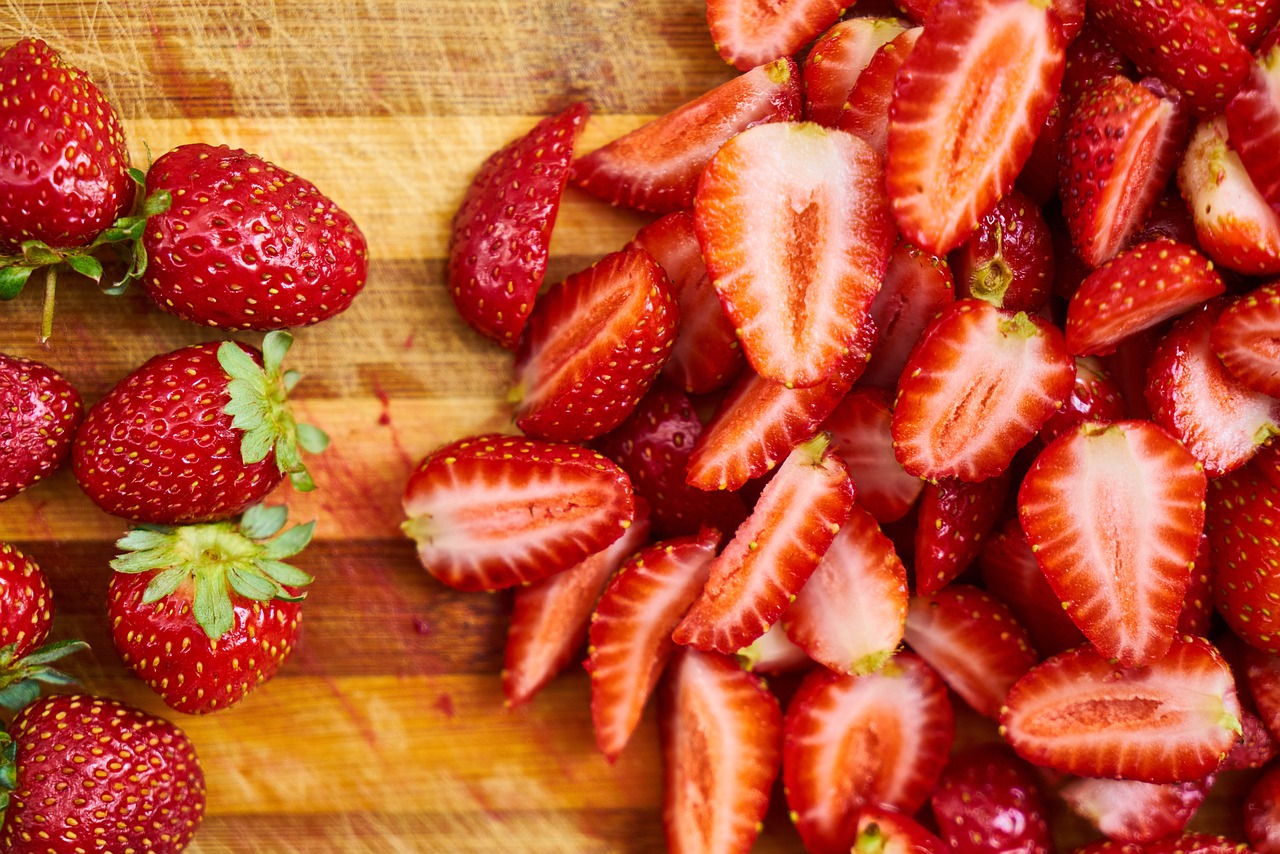
Choosing the Right Food
When it comes to selecting the right food for your ferret, it's not just about grabbing any bag off the shelf. Ferrets are obligate carnivores, which means their bodies are designed to thrive on a diet rich in animal protein. This is where the adventure begins! Imagine embarking on a treasure hunt where the prize is your ferret's health and happiness. You want to look for high-quality commercial ferret food that lists meat as the primary ingredient. Think of it as the foundation of a solid building; without a strong base, everything else can crumble.
So, what should you be keeping an eye out for? First and foremost, look for foods that contain at least 30% protein and around 15% fat. These percentages may vary slightly depending on your ferret's age and activity level, but they serve as a good guideline. It's like choosing the right fuel for a sports car—premium fuel will keep it running smoothly. Brands such as Marshall, Zupreem, and Ferretone are often recommended by ferret enthusiasts and veterinarians alike. They offer a balanced mix of protein and fat, which is essential for your ferret's energy and overall well-being.
Now, let’s talk about the importance of reading food labels. You wouldn’t buy a car without checking the specifications, right? The same goes for ferret food. When examining the label, look for the following key components:
- First Ingredient: It should be a high-quality source of animal protein, like chicken or turkey.
- Avoid Fillers: Ingredients like corn, soy, and wheat are not ideal, as they provide little nutritional value.
- Preservatives: Opt for foods without artificial preservatives, colors, or flavors.
It’s also important to consider the size of the kibble. Smaller kibbles are generally easier for ferrets to eat, especially for younger or older ferrets who might have dental issues. Think of it like choosing the right size of puzzle pieces; they need to fit just right for everything to come together smoothly.
In addition to commercial foods, some ferret owners consider supplementing with raw or freeze-dried meats. While this can be an excellent addition, it’s crucial to ensure that any homemade or supplementary food is nutritionally balanced. You wouldn’t want to serve your ferret a gourmet meal that lacks essential nutrients, right? Always do your research or consult with a vet before making such changes.
In summary, choosing the right food for your ferret involves careful consideration of ingredients, nutritional content, and quality. By being a savvy shopper and keeping your ferret's unique dietary needs in mind, you can ensure that your furry friend enjoys a long, healthy, and vibrant life. Remember, every meal is an opportunity to nourish and support your pet's well-being, so choose wisely!
Reading Food Labels
When it comes to choosing the right food for your ferret, understanding how to read food labels is absolutely crucial. Think of food labels as the roadmap to your ferret's health; they guide you to make informed choices that can significantly impact your pet's well-being. Just like you wouldn't pick a car based solely on its color, you shouldn't choose ferret food without examining its nutritional content. So, what exactly should you be looking for?
First and foremost, the ingredient list is your best friend. Ingredients are typically listed in descending order by weight, meaning the first few ingredients are the most significant. For ferrets, you want to see high-quality sources of protein at the top of the list. Look for ingredients like chicken, turkey, or lamb, as these will provide the necessary protein that ferrets thrive on. Avoid vague terms like "meat by-products," as they can be low-quality and not suitable for your furry friend.
Next, pay attention to the guaranteed analysis section of the label. This part provides a breakdown of the nutrients in the food. For ferrets, you should look for a minimum of 30% protein and 15% fat. Anything less could lead to nutritional deficiencies, which can affect your ferret's energy levels and overall health. Remember, ferrets are obligate carnivores, so their diet should be heavily protein-based.
Another important factor is the presence of fillers. Ingredients like corn, wheat, and soy are often used as cheap fillers that provide little nutritional value. These ingredients can lead to obesity and other health issues in ferrets. If you see these at the top of the ingredient list, it might be time to reconsider your choice.
To further illustrate how to read food labels, here's a simple table summarizing the key components to look for:
| Component | What to Look For | Avoid |
|---|---|---|
| Protein Source | High-quality animal protein (e.g., chicken, turkey) | Meat by-products or vague terms |
| Fat Content | Minimum 15% fat | Low-fat content |
| Fillers | Minimal or absent | Corn, wheat, soy |
Lastly, don't forget to check for any added vitamins and minerals. Essential nutrients like taurine are vital for your ferret's health, so make sure these are included in the food. A well-rounded diet can make all the difference in your ferret's energy levels and longevity.
In summary, reading food labels isn't just a chore; it's an essential skill that every ferret owner should master. By understanding what to look for and what to avoid, you can ensure that your furry companion receives a diet that supports their health and happiness. So the next time you're at the pet store, take a moment to scrutinize those labels—your ferret will thank you for it!
Ingredients to Avoid
When it comes to crafting a healthy diet for your ferret, being vigilant about what goes into their food is just as important as knowing what to include. Some ingredients can be downright harmful, leading to serious health issues that could affect your furry friend's vitality and happiness. So, what should you steer clear of when shopping for ferret food? Let’s dive into some of the key ingredients you definitely want to avoid.
First on the list is corn. While it might be a common filler in many pet foods, ferrets are obligate carnivores, meaning their bodies are designed to thrive on a diet rich in animal protein. Corn offers little nutritional value to ferrets and can lead to digestive issues. Similarly, wheat and soy should also be avoided. These ingredients can cause allergies and are not suitable for your ferret's dietary needs.
Next, keep an eye out for artificial preservatives and flavors. Ingredients such as BHA, BHT, and ethoxyquin are often added to extend shelf life, but they can be harmful over time. Your ferret deserves natural, wholesome food that doesn’t come with a side of chemicals. Additionally, avoid any food containing by-products. While by-products can be a source of protein, they often come from low-quality sources and may not be safe for your pet.
Another ingredient to watch out for is high levels of carbohydrates. Some commercial ferret foods are packed with grains and sugars, which can lead to obesity and other health complications. Ferrets thrive on a high-protein, low-carb diet, and excess carbohydrates can upset their delicate digestive systems. Instead, focus on foods that list meat as the first ingredient, ensuring that your ferret is getting the nutrition they need.
Lastly, be cautious of any food that includes raw eggs or raw fish. While these might seem like natural options, they can pose risks of salmonella or other harmful bacteria. It’s essential to prioritize your ferret's health by avoiding these potentially dangerous ingredients.
To summarize, here’s a quick reference table of ingredients to avoid:
| Ingredient | Reason to Avoid |
|---|---|
| Corn | Low nutritional value, can cause digestive issues |
| Wheat and Soy | Potential allergens, not suitable for carnivores |
| Artificial Preservatives | Harmful chemicals that can affect health |
| By-products | Low-quality protein sources |
| High Carbohydrates | Can lead to obesity and digestive issues |
| Raw Eggs and Fish | Risk of harmful bacteria |
By steering clear of these ingredients, you’re already on the right path to creating a balanced and nutritious diet for your ferret. Remember, a little diligence goes a long way in ensuring your ferret stays healthy and happy!
Q: Can I feed my ferret fruits and vegetables?
A: While ferrets may nibble on small amounts of fruits and vegetables, they are not a necessary part of their diet and should be given sparingly. Focus on high-quality protein sources instead.
Q: How often should I feed my ferret?
A: Ferrets typically require multiple meals a day. It’s best to feed them small portions throughout the day to mimic their natural eating habits.
Q: Is it okay to mix different brands of ferret food?
A: Mixing different brands can be beneficial as long as both are high-quality and meet your ferret's nutritional needs. However, always introduce new foods gradually to avoid digestive upset.
Q: Should I consult a vet before changing my ferret's diet?
A: Absolutely! Consulting a veterinarian can provide valuable insights tailored to your ferret's specific health needs and dietary requirements.
Essential Nutrients
When it comes to crafting a diet plan for your ferret, understanding the they need is crucial. Just like us, ferrets require a variety of nutrients to thrive, but their needs are quite specific. The primary components of a ferret's diet should include high-quality protein, healthy fats, and essential vitamins and minerals. Let's break it down a bit further.
First off, protein is the cornerstone of a ferret's diet. These little furballs are obligate carnivores, which means they need a diet rich in animal protein to support their energy levels and overall health. Look for foods that contain at least 30-40% protein. Good sources include chicken, turkey, and fish. Not only does protein provide the building blocks for muscle, but it also plays a vital role in maintaining a strong immune system.
Next up, we have fats. Ferrets need a moderate amount of fat in their diet, typically around 15-20%. This might seem high, but fats are essential for energy and help in the absorption of certain vitamins. Healthy sources of fat include fish oil and chicken fat. However, be cautious with the amount you provide, as too much fat can lead to obesity and other health issues.
Now, let’s not forget about carbohydrates. While ferrets can digest some carbs, they should not be the main focus of their diet. Ideally, carbohydrates should make up less than 5% of their total intake. Look for foods with minimal grains and fillers, as these can lead to digestive problems and don’t provide much nutritional value.
Vitamins and minerals are also vital for your ferret's health. Key nutrients include:
- Vitamin A: Essential for vision and immune function.
- Vitamin D: Important for calcium absorption and bone health.
- Calcium: Crucial for strong bones and teeth.
- Phosphorus: Works with calcium to maintain healthy bones.
Incorporating these nutrients into your ferret's diet is essential for their well-being. You can find many commercial ferret foods that are formulated to meet these nutritional needs, but if you're considering a homemade diet, make sure to include a balance of these essential nutrients. Always consult with your veterinarian to ensure that your ferret is getting everything they need to live a healthy, happy life.
Q: Can I feed my ferret fruits and vegetables?
A: While some ferrets may nibble on fruits and veggies, they should not be a significant part of their diet. Ferrets are carnivores and thrive on animal-based proteins.
Q: How often should I feed my ferret?
A: Ferrets typically eat multiple small meals throughout the day. It's best to provide food at least two to three times a day, adjusting based on their age and activity level.
Q: Is it okay to give my ferret treats?
A: Yes, but treats should be given in moderation. Opt for high-protein treats specifically designed for ferrets to maintain their health.
Q: How can I tell if my ferret is getting enough nutrients?
A: Regular vet check-ups are essential. You should monitor your ferret's weight, energy level, and coat condition as indicators of their overall health.
Homemade Diet Options
Creating a homemade diet for your ferret can be a rewarding experience, but it also comes with its set of challenges. Ferrets are obligate carnivores, which means their diet should primarily consist of meat. When preparing meals at home, it’s crucial to ensure that you’re providing a balanced diet that meets all of their nutritional needs. Think of it like crafting a gourmet dish; you want to use the best ingredients to create something that not only tastes good but also nourishes your furry friend.
One popular option is to use a combination of raw meats, organs, and bones. For example, you could prepare meals using chicken, turkey, or even rabbit. These meats provide the essential proteins that ferrets need to thrive. Additionally, including organ meats like liver or heart is vital because they are rich in necessary vitamins and minerals. However, it’s important to note that you should only offer organ meats in moderation, as too much can lead to health issues.
Here’s a simple recipe to get you started:
Ingredients: - 1 cup of raw chicken (boneless, skinless) - 1/4 cup of chicken liver - 1/4 cup of raw eggs (with shell for calcium) - 1 tablespoon of fish oil (for omega-3 fatty acids)
To prepare, blend all the ingredients together until smooth. Serve it fresh or store it in the refrigerator for a couple of days. Remember, ferrets can be picky eaters, so you might need to experiment with different meats and combinations to find what they enjoy the most.
In addition to raw meals, you can also consider cooking some foods. Steaming or lightly cooking meats can sometimes make them more palatable for your ferret. Just be sure to avoid adding any seasonings, as many common spices can be harmful to them. Think of it as preparing a meal for a toddler: simple, wholesome, and free from additives.
While homemade diets can be beneficial, it’s essential to do your homework. Consulting a veterinarian or a pet nutritionist can help you formulate a diet that covers all the bases. They can guide you on the right proportions of protein, fat, and carbohydrates, as well as the necessary vitamins and minerals. Remember, just like us, ferrets can suffer from deficiencies or excesses, so balance is key!
Lastly, keep in mind that transitioning your ferret to a homemade diet should be gradual. Sudden changes can upset their digestive system, leading to discomfort or health issues. Start by mixing a small amount of homemade food with their regular diet and gradually increase the homemade portion over a week or two. This slow transition helps your ferret adapt better and ensures they are enjoying their meals without any tummy troubles.
Q: Can I feed my ferret fruits and vegetables?
A: Ferrets are obligate carnivores, so their diet should primarily consist of meat. Fruits and vegetables can lead to digestive issues and should be avoided.
Q: How often should I feed my ferret homemade meals?
A: You can feed your ferret homemade meals daily, but it’s essential to ensure that the diet is balanced and meets all their nutritional needs.
Q: What if my ferret refuses to eat homemade food?
A: Ferrets can be picky eaters. Try different meats and preparations, and consider mixing homemade food with their favorite commercial food to entice them.
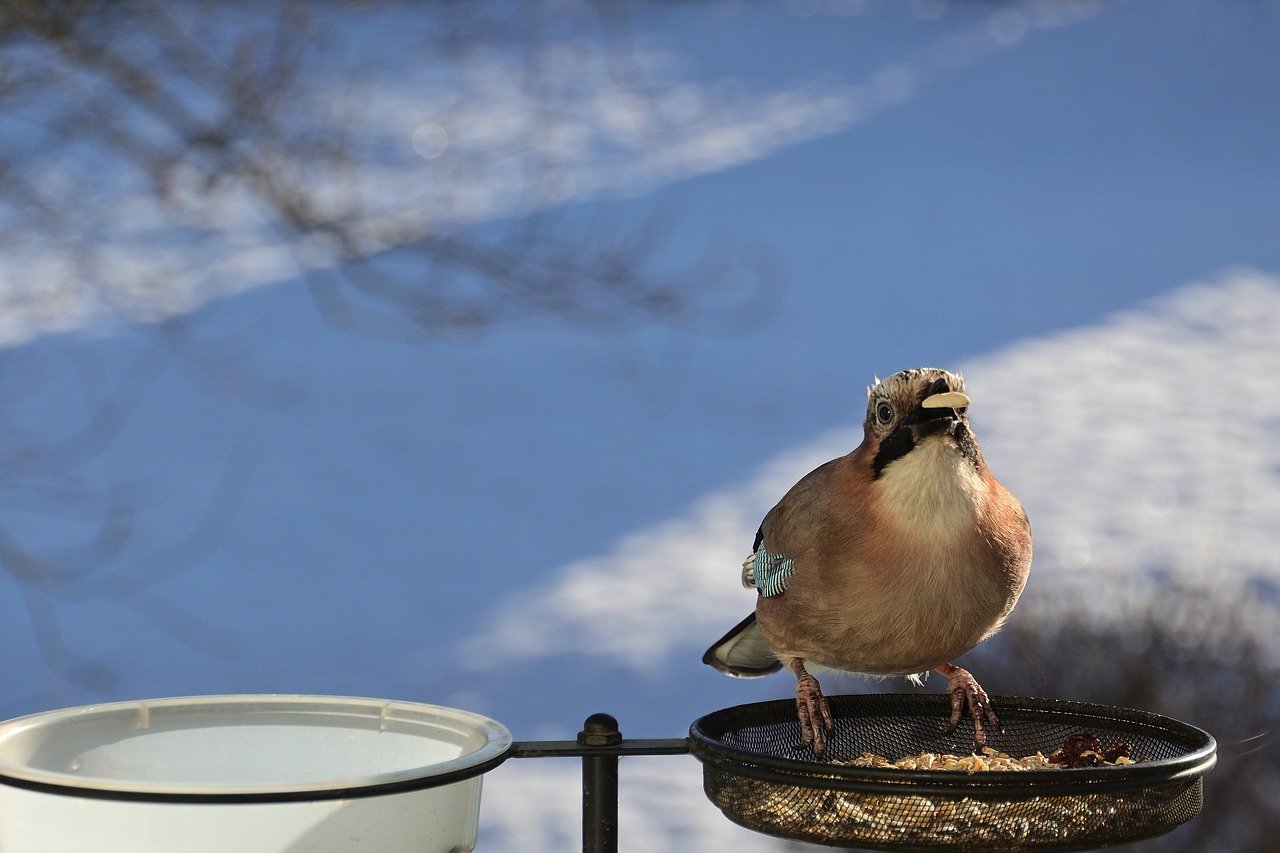
Feeding Schedule and Portions
Establishing a proper feeding schedule is crucial for your ferret's overall health and digestion. Just like humans, ferrets thrive on routine. They are creatures of habit, and a consistent feeding schedule not only helps them feel secure but also aids in their digestive processes. So, how often should you feed your ferret? The general recommendation is to feed your ferret two to four times a day, depending on their age, activity level, and individual needs. For younger ferrets, more frequent meals may be necessary, while adult ferrets can thrive on a couple of meals each day.
When it comes to portion sizes, the key is to balance their nutritional intake with their energy expenditure. An average adult ferret typically requires about 5 to 7 ounces of food per day. However, this can vary based on their size and metabolism. It’s essential to observe your ferret's body condition and adjust portions accordingly. If your ferret seems to be gaining too much weight, you might need to reduce their portions slightly, while a ferret that appears underweight may require an increase.
Another important aspect of feeding is the type of food you provide. High-quality ferret food should be the mainstay of their diet, but consider incorporating small amounts of treats or fresh protein sources like cooked chicken or eggs. Just remember, treats should not exceed 10% of their daily intake. Overindulgence can lead to obesity and other health issues, so moderation is key!
To help you visualize a typical feeding schedule, here’s a simple table:
| Time | Feeding Amount | Notes |
|---|---|---|
| 7:00 AM | 2-3 oz | Breakfast |
| 12:00 PM | 2-3 oz | Lunch |
| 5:00 PM | 2-3 oz | Dinner |
| 8:00 PM | 1-2 oz | Optional Snack |
By adhering to a structured feeding schedule and being mindful of portion sizes, you can help ensure that your ferret maintains a healthy weight and enjoys a balanced diet. It’s also a good idea to monitor your ferret’s weight regularly. If you notice any significant changes, it may be time to adjust their food intake or consult with a veterinarian.
- How often should I feed my ferret? – Ideally, 2 to 4 times a day, depending on their age and activity level.
- What is the best type of food for ferrets? – High-quality ferret food that is high in protein and fat is recommended.
- Can I give my ferret treats? – Yes, but limit treats to no more than 10% of their daily intake.
- How do I know if my ferret is overweight? – Monitor their weight and body condition; consult a vet if you're unsure.
Monitoring Weight and Health
Keeping a close eye on your ferret's weight and overall health is not just a good practice; it's a vital part of being a responsible ferret owner. Think of it as a regular check-up for your furry friend. Just like we humans need to monitor our health, ferrets require the same attention to ensure they are thriving. A healthy ferret is a happy ferret, and monitoring their weight is a key indicator of their well-being.
So, how do you go about this? First, establish a consistent routine. Weigh your ferret at least once a month using a digital scale. This will help you track any sudden changes in weight, which can be a sign of underlying health issues. If your ferret is gaining weight, it may indicate overfeeding or a lack of exercise. Conversely, if they are losing weight, it could be a sign of illness or stress. Both scenarios require your immediate attention.
In addition to weight, keep an eye on other health indicators, such as:
- Activity Level: Is your ferret playful and energetic, or are they lethargic?
- Appetite: Are they eating their food regularly, or have you noticed a decrease in their appetite?
- Coat Condition: A healthy ferret will have a shiny, soft coat. Dull or patchy fur can be a sign of health issues.
Another useful tool is to create a health journal for your ferret. Document their weight, food intake, and any behavioral changes. This will not only help you identify trends over time but will also be invaluable information to share with your veterinarian during check-ups. Remember, just like we keep track of our own health, doing so for your ferret can help catch potential problems early.
If you notice any significant changes in your ferret's weight or behavior, don't hesitate to consult with a veterinarian. They can provide professional insights and may recommend dietary adjustments or medical evaluations if necessary. Regular check-ups are essential, as ferrets can be prone to specific health issues that may not be immediately apparent.
In summary, monitoring your ferret's weight and health is a fundamental part of their care. By maintaining a routine of weighing, observing, and documenting, you can ensure your little buddy stays healthy and happy for years to come. After all, a well-cared-for ferret is a joy to have around!
Q1: How often should I weigh my ferret?
A1: It's recommended to weigh your ferret at least once a month to monitor any significant changes in their weight.
Q2: What should I do if my ferret is losing weight?
A2: If your ferret is losing weight, consult a veterinarian as it may indicate an underlying health issue.
Q3: Can I use a regular scale to weigh my ferret?
A3: Yes, you can use a regular digital scale. Just make sure to hold your ferret and subtract your weight to get an accurate reading.
Q4: What other signs should I look for besides weight?
A4: Monitor their activity level, appetite, and coat condition to get a comprehensive view of their health.
Consulting a Veterinarian
When it comes to the health and well-being of your ferret, consulting a veterinarian isn’t just a good idea—it’s essential. Just like you wouldn’t ignore a persistent cough or a fever in yourself, your furry friend deserves the same level of care and attention. Regular veterinary check-ups can help catch potential health issues before they become serious problems. Think of your vet as your ferret’s personal health coach, guiding you on the best practices for a balanced diet, vaccinations, and preventive care.
During these consultations, your veterinarian can provide tailored advice based on your ferret's specific needs. They can help you navigate the sometimes confusing world of ferret nutrition, ensuring that you’re providing a diet that meets their unique requirements. This is especially important since ferrets have a fast metabolism and specific dietary needs that differ significantly from other pets. For instance, your vet might suggest particular brands of food or even specific ingredients that are beneficial for your ferret's health.
Moreover, if you’re considering making homemade meals for your ferret, your vet can offer guidance on how to balance those meals properly. It's crucial to ensure that your homemade diet includes all the necessary nutrients, and your vet can help you avoid common pitfalls. They might suggest recipes or ingredient combinations that are safe and healthy. After all, a well-balanced diet is the cornerstone of good health, and your vet can help you achieve that.
Another key aspect of consulting with a veterinarian is monitoring your ferret’s weight and overall health. Ferrets can be prone to certain health issues, including obesity, insulinoma, and adrenal disease. Regular check-ups allow your vet to keep an eye on your ferret’s weight and body condition score, helping you make necessary adjustments to their diet or feeding schedule. If your ferret is gaining weight too quickly or losing weight unexpectedly, your vet can provide insights into potential dietary changes or health concerns.
In addition to diet, your veterinarian can also recommend routine vaccinations and preventive treatments that are vital for keeping your ferret healthy. They can advise you on the appropriate vaccination schedule and any necessary parasite control measures. Remember, an ounce of prevention is worth a pound of cure, and staying proactive about your ferret’s health can save you time, money, and heartache in the long run.
In summary, consulting a veterinarian is not just a checkbox on your ferret care list; it’s a vital part of ensuring your pet lives a long, healthy, and happy life. So, don’t hesitate to reach out to your vet with any questions or concerns you may have about your ferret's diet or health. They are your best resource for keeping your furry companion in tip-top shape!
- How often should I take my ferret to the vet? It’s generally recommended to take your ferret for a check-up at least once a year, but more frequent visits may be necessary if your ferret has health issues.
- What should I ask my vet during consultations? Ask about diet recommendations, vaccination schedules, and any specific health concerns related to your ferret's age or breed.
- Can I get dietary advice from my vet? Absolutely! Your vet can help you create a balanced diet plan tailored to your ferret's unique needs.
Frequently Asked Questions
- What should I feed my ferret?
Ferrets thrive on a diet high in animal protein and fat. Look for high-quality commercial ferret foods that list meat as the first ingredient. You can also consider raw or cooked meats, but be cautious about ensuring they get a balanced diet.
- How often should I feed my ferret?
Ferrets have fast metabolisms, so they should be fed multiple times a day. A good rule of thumb is to offer meals two to three times daily, ensuring they have access to food at all times, especially if they are young or very active.
- Can I give my ferret fruits and vegetables?
While ferrets are obligate carnivores, small amounts of fruits and vegetables can be offered as treats. However, they should not be a significant part of their diet, as ferrets cannot digest plant matter effectively.
- How do I know if my ferret is overweight?
To check if your ferret is at a healthy weight, you should be able to feel their ribs without excessive pressure. If your ferret has a noticeable belly or difficulty moving, it may be time to adjust their diet and consult a veterinarian.
- What are some ingredients to avoid in ferret food?
Avoid foods with fillers like corn, soy, and artificial additives. High sugar content and grains can also be harmful. Always read the labels to ensure your ferret's food is free from harmful ingredients.
- Is it okay to make homemade ferret food?
Yes, you can prepare homemade meals for your ferret, but it's crucial to ensure they receive all essential nutrients. Consult with a veterinarian for recipes and guidelines to create a balanced diet.
- How can I monitor my ferret's health?
Regularly check your ferret's weight, coat condition, and energy levels. Keep an eye on their eating habits and consult a veterinarian if you notice any sudden changes in their health or behavior.
- Do I need to consult a veterinarian about my ferret's diet?
Absolutely! Regular consultations with a veterinarian are essential for maintaining your ferret's health. They can provide tailored advice on diet, nutrition, and any specific health concerns.



